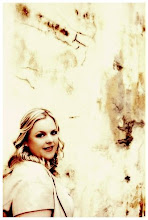Wednesday, October 12, 2005
"Scientists develop amazing anti-gravity device"
by Amanda
 New Post
New Post
"It has long been known" that scientists dislike journalists, and journalists dislike scientists. Why is this? The journalist sees the scientist as boring (not headline news), while the scientist sees the journalist as a sensationalist who deliberately misconstrues the facts.
Quite obviously, these generalisations are not true, but they nevertheless influence our (that is, the journalists', or scientists') behaviours towards one or the other.
Just today, I was having a heated debate with J over scientific communication. J was pushing the part of the poor, misunderstood scientist, forced by the demands of his publically funded grant to communicate his science to the tax-paying public. I, having a natural tendency to disagree with J, took the opposite stance. It was a long-winded debate, going frequently off-track as these things are wont to do, but the ultimate points of J's argument were:
Quite obviously, these generalisations are not true, but they nevertheless influence our (that is, the journalists', or scientists') behaviours towards one or the other.
Just today, I was having a heated debate with J over scientific communication. J was pushing the part of the poor, misunderstood scientist, forced by the demands of his publically funded grant to communicate his science to the tax-paying public. I, having a natural tendency to disagree with J, took the opposite stance. It was a long-winded debate, going frequently off-track as these things are wont to do, but the ultimate points of J's argument were:
- scientists are forced to publish uninteresting stuff (or at least, stuff that will be interesting with another ten or twenty years of research, or stuff that is really premature to be discussing at the moment)
- journalists want scientists to "do their job for them" (ie, make the article interesting and accesible to the general public), but will not reciprocate this by helping scientists write more simply for the general public
- all major press organisations (ie major daily newspapers, etc) should have a science correspondent that oks the articles
My points were:
- Yes, scientists are "forced" to communicate their work to the tax-payers who pay them, but this fact is not going to change, so get over it, stop whining and move on. *Make* your science interesting for the public - it doesn't have to be dry and dull.
- Journalists cannot be expected to rewrite an article that they don't fully understand and still maintain the scientific accuracy of the article. If we don't do it for them, or at least collaborate heavily with them, we should not complain that "journalists get it wrong". I certainly don't think any journalist deliberately miscontrues the facts - its probably more likely that the facts get a bit mangled, unintentionally, when simplifying the article for the lay man. The scientist might find the fact that RNA has been found to have catalytic activity, giving rise to the new term "ribozymes", but frankly, to the mother who is rushing in the morning to get her child off to school and herself off to work in time wants to know "Why should I care, whats in it for me, how much will it cost me..." That's really the bottom line.
- A "science officer" on the staff of every newspaper won't solve problems of journalistic inaccuracies, because one person can't possibly know all the ins and outs of all fields of science.






At Sun Oct 16, 01:15:00 pm GMT+2, uklaserman said…
uklaserman said…
Science and Journalism is a real problem if you ask me - look at the growing tabloid press on bird flu, now its hit Europe. The possibility of a pandemic has beed "discussed" for well over a year, but now its headline news.
So how do you get to the truth? What is the truth?
At Sun Oct 16, 01:58:00 pm GMT+2, Amanda said…
Amanda said…